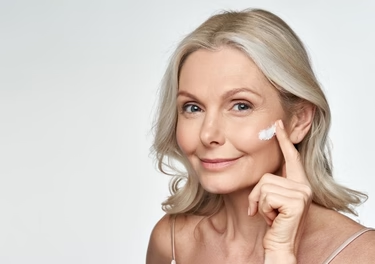Skincare During Pregnancy: What to Avoid

It looks like we are experiencing a baby boom! With so many of my patients sharing their exciting news of a new baby on the way, I decided it was time to discuss the products you should and shouldn't be using during pregnancy. Read on for my guide to pregnancy skincare
I'm pregnant, will my skin change?
Yes. If your body is changing and adapting to grow a tiny human inside you, your skin is going to change too. Hormones affect the skin during your menstrual cycle and pregnancy is like one long PMT moment! Mood swings, cravings and sleepless nights all play a large role in the skin's downfall, but don't panic it's only temporary.
During pregnancy, the skin will change and some patients find that normally oily skin becomes dry and drier skin becomes oilier. Other patients find that their existing skin complaints are heightened. As frustrating as this may be, it's important to remember that whilst we want to keep the skin in good condition, the most important thing is to stay safe whilst expecting.
Hydroxy Acids During Pregnancy
Both Alpha Hydroxy Acids and Beta Hydroxy Acids are commonly used in skincare products thanks to their ability to gently resurface and rejuvenate the surface layer of skin.
Common (Alpha & Beta) Hydroxy Acids found in skincare:
- Glycolic Acid
- Lactic Acid
- Tartaric Acid
- Citric Acid
- Malic Acid
- Mandelic Acid
- Salicylic Acid
These over-the-counter products often contain a small amount of active ingredients and the skin only absorbs small amounts of these acids when applied topically, making the risk during pregnancy low. It is important to note that this applies to topically applied products; Beta Hydroxy Acid, and Salicylic Acid, should not be consumed orally during pregnancy.
Clinic-bought products known as 'Cosmeceuticals' and in-clinic treatments using Hydroxy Acids, contain higher strengths and higher levels of active ingredients, which may cause irritation and be harmful during pregnancy.
Vitamin A During Pregnancy
Retinoids are derivatives of Vitamin A that can help to improve skin renewal and improve a variety of skin conditions. Most of my patients are using some form of Vitamin A cream to benefit pigmentation, ageing or acne. However, studies have shown that oral retinoids and high dosages of Vitamin A can cause birth defects if taken during pregnancy.
Types of Vitamin A derivatives found skincare:
- Tazarotene
- Tretinoin
- Adapalene
- Alitretinoin
- Retinoic acid
- Retinol
- Retinyl linoleate
- Retinyl palmitate
- Bexarotene
- Retinaldehyde
- Isotretinoin
How Can I Reduce Breakouts During Pregnancy?
If your GP, Dermatologist or skincare professional has prescribed you an acne treatment, it may contain ingredients that should be avoided during pregnancy.
For example, Benzoyl Peroxide is an ingredient commonly found in prescription acne treatments and is not recommended for use during pregnancy. If you use any prescription medication, be sure to speak to your prescriber if you become pregnant.
I always recommend my pregnant patients take control of their skin via their diet. Eat plenty of foods high in fibre, rich in essential fatty acids and plenty of clean, lean, whole foods that are low in sugars and preservatives.
For acne-prone patients, when it comes to skincare, opt for oil-free cosmetics. Keep an eye out for the key phrase 'non-comedogenic', which means non-pore clogging.
If you are in doubt about any ingredients or skincare products you are using, be sure to speak to your healthcare professional, doctor or Midwife to be 100% sure what you are using is safe.
For more information or to book your free consultation please call 0113 282 3300.
Written for you by: Emily, Face the Future
Image source: freepik.com

























































